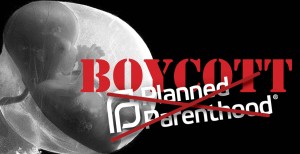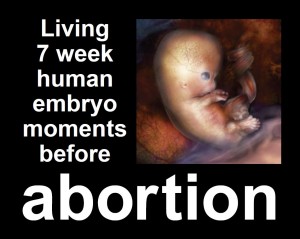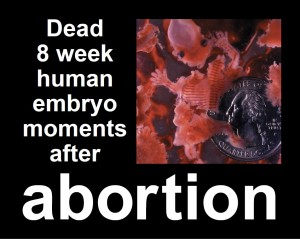 On April 29, 2015, the American Freedom Law Center filed a civil rights lawsuit against The Irvine Company, the owner of the Irvine Spectrum Center and Fashion Island, two large shopping centers located in Orange County, alleging that the Company violated California’s liberty of speech provision by banning anti-abortion signs that it claims were “gruesome.” Under the California Constitution, large shopping centers are considered public forums for the right to free speech.
On April 29, 2015, the American Freedom Law Center filed a civil rights lawsuit against The Irvine Company, the owner of the Irvine Spectrum Center and Fashion Island, two large shopping centers located in Orange County, alleging that the Company violated California’s liberty of speech provision by banning anti-abortion signs that it claims were “gruesome.” Under the California Constitution, large shopping centers are considered public forums for the right to free speech.
The lawsuit was filed on behalf of the Center for Bio-Ethical Reform, Inc. (CBR) and its Executive Director, Gregg Cunningham. CBR is a nonprofit, social reform organization that makes extensive use of abortion imagery to promote its pro-life policy initiatives.
In December 2014, Cunningham sent a letter to officials at the Irvine Spectrum Center and Fashion Island, notifying them of CBR’s intent to conduct peaceful boycott picketing in close proximity to several targeted retail stores within the malls for the purpose of informing prospective customers that these companies permit business entities under their corporate control to donate money to Planned Parenthood, America’s largest abortion provider.
As part of their expressive activity, CBR intended to display a sign showing a picture of a living human embryo at seven weeks gestational age moments before an abortion and a sign showing a picture of a dead human embryo at eight weeks gestational age moments after an abortion. The signs, which present accurate and objective facts about abortion, appear as follows:
The Company rejected both signs, claiming that they were “gruesome” and thus not permitted pursuant to the Company’s rules on non-commercial expressive activity within its shopping centers.
As a result of these denials, CBR proposed a third sign that simply displayed a QR code that a viewer could scan with his or her smartphone in order to view an abortion video. CBR intended to urge passersby to accept personal responsibility and watch the abortion video on their own — and those who declined would be asked “If abortion is too terrible to watch, should you give your money to businesses which support it?” A copy of this sign appears as follows:
The Company rejected this sign as well, prompting the filing of the lawsuit, which seeks to vindicate CBR’s right under California’s liberty of speech clause to display anti-abortion signs. As alleged in the complaint, a ban on “gruesome” images in the abortion context is ultimately a viewpoint-based restriction, which is the most egregious form of content discrimination under the law.
CASE UPDATE (October 2017): A trial was held in California, at which we prevailed on some important issues and lost on others. Read the Court’s order here. We filed an appeal as to some issues.
CASE UPDATE (April 30, 2018): We filed our opening brief in the California Court of Appeals.
CASE UPDATE (July 2, 2019): The California Court of Appeals ruled in our favor, holding that the restriction on “grisly or gruesome” images violates the California Constitution.
CASE UPDATE (September 11, 2019): We filed a response in the California Supreme Court to a request to depublish (i.e., make non-precedential) the California Court of Appeals decision.



